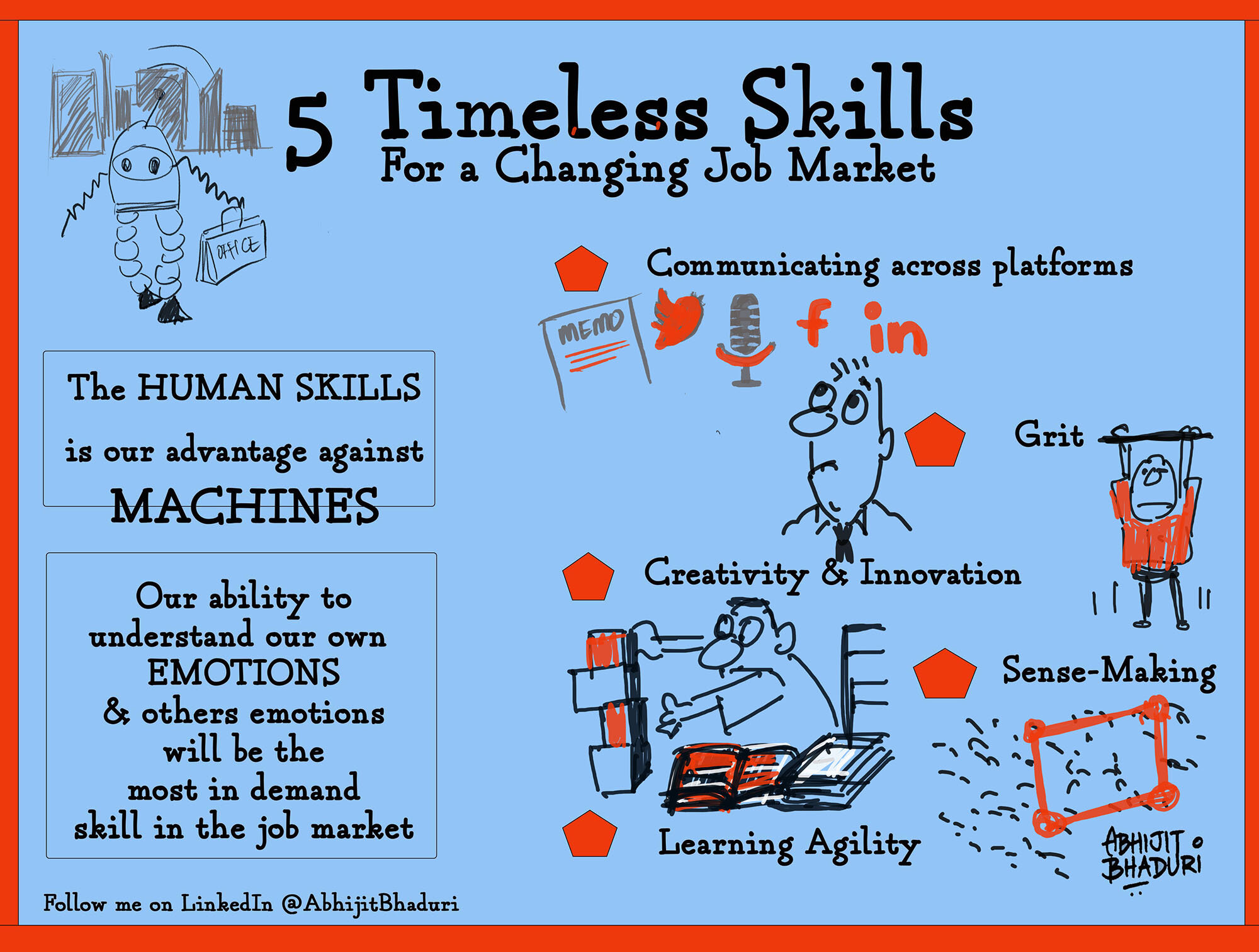5 Timeless Skills for a Changing Job Market
The world of work is in perpetual beta, but these irreplaceable abilities can help you stay ahead
I graduated from XLRI —short for Xavier Labour Relations Institute—with a post-graduate diploma in personnel management and industrial relations. The institute is now called Xavier School of Management and the course is called ‘human resource management’. I also got a degree in law but several labour laws have changed in India since then. In school, I read about nine planets in our solar system. Today, even that is not true. Talk about the shrinking shelf life of knowledge.
A photo from the days at XLRI Jamshedpur
Oh what a time it was …
Since I started off in personnel management, the field itself morphed into what is called human resources. Now, the term to describe it is ‘talent management’. My last employer—Wipro—is now known more as an IT-service provider than for consumer goods. Some of my previous employers, such as I Microsoft, are now trillion-dollar firms while others have lost their sheen. The last role I held—chief learning officer— did not exist when I was a fresher. In 2020, the pandemic revealed that our homes can double up as the office of even a Fortune 500 company.
The world of work is in perpetual beta. Is it even possible to future-proof your career when change is constant Sense-Making: The ability to take data—from objective, quantitative sources as well as subjective, qualitative opinions—and synthesise it into one picture by connecting the dots. Sense-making is becoming an increasingly valued skill as digital platforms extract a continuous firehouse of both raw data and behavioural insight from our digital presence. Learning Agility: Workers must be able to anticipate changes and adapt themselves by learning continuously. Flexibility and the willingness to acquire new skills will lead employees away from the fate of the dinosaurs. Learning-agile people are capable of picking up what one has never been formally taught and can work effectively in diverse teams, industries and areas, respond to evolving circumstances and be depended upon to deliver results regardless of the context.
As machines and softwares do more rule-based tasks, work that depends on informed judgement—an often ambiguous space requiring highly skilled communicators who can influence a wide group of people—will be where algorithms give way to humans. In the larger scope of things to come, human emotions will shape the world of work and the relationship worker will co-exist with the knowledge worker.
Read: Citius, Altius, Fortius Jobs Will Go Away
Much like the Olympics motto citius, altius, fortius, machines are faster, higher and stronger than humans, but they cannot build hope, or empathise with a terminally ill patient struggling emotionally. The human edge lies in ‘soft-skills’, which do not depend on degrees or qualifications. They take longer to build, remain relevant throughout your career and are irreplaceable no matter the changes in the workplace market. These are the five skills every career savvy employee must develop in order to stay ahead of the curve:
Communication
We are communicating with the world through multiple mediums. Effective communicators can change their message according to the means and mood of their audience.
They are equally effective in written and verbal communication because they are also good listeners.
Grit
This is the ability to hold on to long-term aspirations and pursue them by navigating obstacles along the way. People with grit don’t give up when they are disappointed. They learn from their mistakes and change their approach, instead of surrendering goals.
3. Creativity and innovation
The ability to reach across different disciplines to solve problems. This often means having to reframe problems in order to find out-of-the-box solutions that are desirable, viable and feasible.
4. Sense-Making
The ability to take data—from objective, quantitative sources as well as subjective, qualitative opinions—and synthesise it into one picture by connecting the dots. Sense-making is becoming an increasingly valued skill as digital platforms extract a continuous firehouse of both raw data and behavioural insight from our digital presence.
5. Learning Agility
Workers must be able to anticipate changes and adapt themselves by learning continuously. Flexibility and the willingness to acquire new skills will lead employees away from the fate of the dinosaurs. Learning-agile people are capable of picking up what one has never been formally taught and can work effectively in diverse teams, industries and areas, respond to evolving circumstances and be depended upon to deliver results regardless of the context.
As machines and softwares do more rule-based tasks, work that depends on informed judgement—an often ambiguous space requiring highly skilled communicators who can influence a wide group of people—will be where algorithms give way to humans. In the larger scope of things to come, human emotions will shape the world of work and the relationship worker will co-exist with the knowledge worker.
First published in Reader's Digest, India, March 2021
I wrote once before for Readers Digest. Here it is



